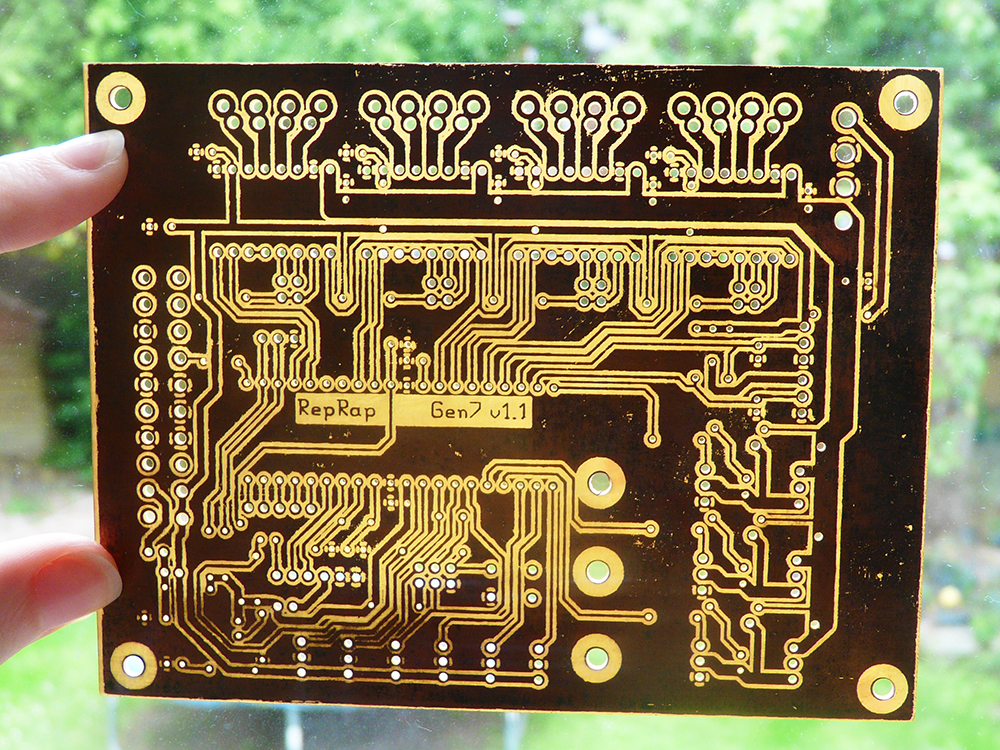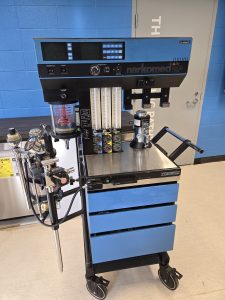7.1 – Introduction
One of the key concepts in electronics is the printed circuit board or PCB. It’s so fundamental that people often forget to explain what a PCB is. Over the next few module, we will discuss the composition of a printed circuit board, cover some terminology and discuss briefly the design process behind creating a new PCB.

In addition, we will be discussing the anaesthesia machine. This will be one of the machines you will be working hands-on with in your labs. The basic function of an anaesthesia machine is to prepare a gas mixture of precisely known, but variable composition. The gas mixture can then be delivered to a breathing system. Anaesthesia machine itself has evolved from a simple pneumatic device to a complex array of mechanical, electrical and computer – controlled components. Much of the driving force for these changes have been to improve patient safety and user convenience. Though many modifications have been brought out still the basic design has not much changed. Hence, knowledge of the basic design of the anaesthesia machine is a must for all biomedical engineering technologists. Below, you can view the Narkomed2B anaesthesia machine. You will have the opportunity to work hands-on with these machines in your BTEC 315 labs

Attributions
Portions of this chapter were adapted from:
- PCB Basics by Sfuptownmaker in SparkFun and is licensed under CC BY-SA 4.0
- Figure 7.1.1: Making Your First Printed Circuit Board by Electronics Lab is licensed under CC BY-SA 4.0
- The Basic Anaesthesia Machine by Gurudatt C.L. is licensed under CC BY-NC-SA 3.0
- Figure 7.1.2: Example Anaesthesia machine by Brendan Chapman is licensed under CC BY 4.0

